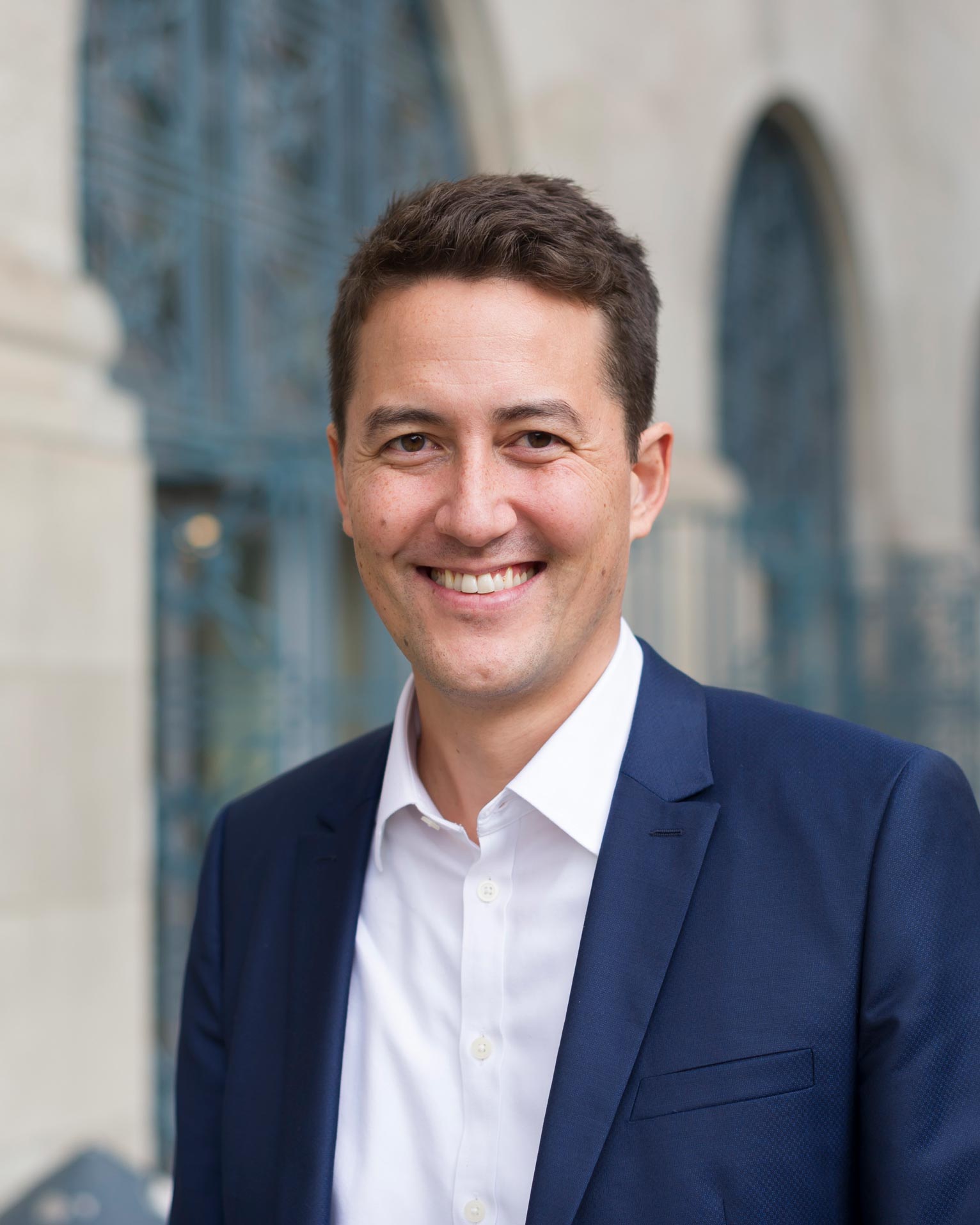AI as a global equaliser
In this episode of VoxDevTalks, host Tim Phillips sits down with David Yanagizawa-Drott, Professor at the University of Zurich and founder of the Social Catalyst Lab, to explore the role of economists in shaping and evaluating artificial intelligence (AI), and whether AI will narrow—or deepen—the divide between the Global North and South.
This article by VoxDev was originally published on 28 May 2025. Edited for layout purposes by the UBS Center.
Focusing particularly on the findings of a field experiment in Ghana, David offers insight into how AI can be leveraged to improve public services, such as education, and what it means for policymakers, researchers and development practitioners around the world.
A turning point: From supervised learning to large language models
David’s interest in AI stems from his background in political economy and development. He initially used basic machine learning tools for academic research, including image and sentiment classification. However, a 2019 podcast episode about Google’s BERT model marked a turning point.
"What they were saying sounded insane to me… you can just tell it what you want it to do."
He realised that these transformer-based models—later developed into GPT-3 and GPT-4—represented a dramatic leap in what machines could do. The public release of ChatGPT further highlighted the potential for widespread social impact, turning what had been a niche tool for researchers into a mainstream technology accessible to everyone.
Will AI increase global inequality?
Despite the excitement, there are clear economic risks. The infrastructure that underpins generative AI—fast internet, data centres, cloud computing, and robust training data—is concentrated in the Global North. These countries are naturally positioned to benefit first and most from AI tools.
"Clearly, the technological frontier is being driven by rich countries, and they are being developed for deployment in ecosystem infrastructure that corresponds to rich countries."
He notes that language, internet speed, and even cultural context play a role in making these models more usable and effective in some regions than others. Without intervention, AI could widen global inequalities.
The case for optimism: AI as a global equaliser
Yet, David is not resigned to this fate. He believes AI could also become a ‘great global equaliser’ by democratising access to knowledge and lowering the cost of expertise in sectors such a healthcare and education.
"Actually, it can potentially radically reduce the costs of transferring knowledge… because the baseline level is so low."
By compressing vast amounts of human knowledge into accessible tools, AI could bridge the skills gap in low-resource settings. For example, AI tutors and clinical decision support systems could help overcome shortages of qualified teachers and medical staff in rural areas.
Real-world test: AI for teacher recruitment in Ghana
In a field experiment in Ghana, David and his co-authors used generative AI to screen applications for a nonprofit that hires university graduates to teach in underserved rural schools. The organisation had previously relied on human reviewers, who were often overburdened and inconsistently thorough.
The experiment randomly assigned applications to one of three groups: human reviewers only, AI-only screening, and human reviewers assisted by AI-generated recommendations.
"The likelihood of hiring success of AI-only screening… that goes up by about 70%. That’s a huge improvement."
Surprisingly, the hybrid approach—where humans reviewed applications after seeing AI recommendations—did not show statistically significant improvement. This finding challenges the widely held belief that a ‘human in the loop’ necessarily improves decision quality.
Automation or augmentation? Rethinking AI’s role
The experiment raised a broader question: should AI replace or assist humans in complex decision-making? The prevailing industry narrative promotes ‘augmentation’, where AI boosts human productivity, but David argues that augmentation must be intentional and well-designed.
"We should take a step back and say: whatever the context we’re interested in… what should be the goal of the system?"
He introduces the concept of AI as a ‘goal-perception-action’ system capable of learning over time. Effective augmentation requires building systems that align with human strengths and support decision-makers, not just replace them. Feedback loops—common in sports coaching but rare in most professions—are critical to this learning process.
"So much of what we do in society doesn’t have that feedback loop… Maybe the systems can help with feedback."
Why local adaptation matters
David warns against treating AI as an off-the-shelf consumer product, rather than a malleable tool that can be shaped for specific contexts.
"We should not make the mistake of taking the technologies as given… you can shape the technology if you put in the resources."
He calls for more investment in adapting open-source models for local languages and needs, especially in low-income countries. The lack of local training data and technical capacity can be overcome—but only with dedicated resources, institutional support and cross-disciplinary collaboration.
A wake-up call for donors and policymakers
David points out that development funders and policymakers have been slow to prioritise AI, even as the technology accelerates rapidly.
"AI isn’t like the top of board meeting agendas for these donor organisations… How much are we investing in Africa currently? I’m pretty sure it’s going to be a very, very, very small number."
He sees hope in growing curiosity among Global South policymakers but emphasises the need for technical capacity, financial investment, and early experimentation to avoid falling behind.
"I'm talking to the youth ministry in Ghana… They are very eager to get going, but we need resources."
The research challenge: Keeping pace with AI
Finally, David discusses the unique challenge AI poses to academic research. Unlike technologies such as fertilisers or bed nets, which remain relatively static over decades, AI evolves monthly. This rapid change makes it difficult for traditional research cycles—often stretching over several years—to keep up.
"This technology is different now in May 2025 compared to May 2024… How do we write the kinds of papers that we development economists write?"
To remain relevant, researchers must focus on identifying underlying mechanisms that outlast any one model or interface. Despite the challenges, David insists economists have a responsibility to engage with this domain.
"We are supposed to be studying how to improve the economy. And here’s a technology that’s likely going to have major impact on the economy. So we just have to roll up our sleeves and get to work."
Who determines the future of AI
This episode of VoxDevTalks provides a compelling examination of AI’s potential to both disrupt and uplift the Global South. Through real-world experimentation and careful reflection, David Yanagizawa-Drott makes the case for a more inclusive, strategic, and mission-driven approach to AI in development.
AI will not automatically close global gaps—but with intentional design, smart regulation, and targeted investment, it just might help. AI's value depends on how we choose to use it.
"If more people get engaged, I’m hoping economists, AI engineers, and policymaker get together and try to tackle social problems… maybe there’s a lot of low-hanging fruit that’s available."
In this episode of VoxDevTalks, host Tim Phillips sits down with David Yanagizawa-Drott, Professor at the University of Zurich and founder of the Social Catalyst Lab, to explore the role of economists in shaping and evaluating artificial intelligence (AI), and whether AI will narrow—or deepen—the divide between the Global North and South.
This article by VoxDev was originally published on 28 May 2025. Edited for layout purposes by the UBS Center.
Focusing particularly on the findings of a field experiment in Ghana, David offers insight into how AI can be leveraged to improve public services, such as education, and what it means for policymakers, researchers and development practitioners around the world.


VoxDevTalks
Contact
David Yanagizawa-Drott received his PhD from IIES at Stockholm University in 2010. At that point, he was hired as Assistant Professor at John F. Kennedy School of Government, Harvard University. He was then promoted to Associate Professor in 2014. In 2016, he was hired as a full professor at University of Zürich. His research has shown that propaganda can cause violent conflict, studying the impact of hate media during the Rwanda Genocide. David has also examined the role of political protests in shaping policy outcomes and elections, establishing evidence that they can be highly effective in moving public opinion. In developing countries, a lot of his work focuses on the how to improve health outcomes and economic outcomes for poor households. In this line of work, for example, David implemented a randomized field experiment that showed that a simple Community Health Worker intervention in Uganda, based on a social entrepreneurship model, reduced child mortality by more than twenty percent. David is a member of several research networks, such as Poverty Action Lab (J-PAL), The Bureau for Research and Economic Analysis of Development (BREAD), European Development Research Network (EUDN) and Center for Economic Policy Research (CEPR). His work has been highlighted in various international media outlets, such as the New York Times, Washington Post, The Guardian, The Economist and various national TV news broadcasts in the U.S.
David Yanagizawa-Drott received his PhD from IIES at Stockholm University in 2010. At that point, he was hired as Assistant Professor at John F. Kennedy School of Government, Harvard University. He was then promoted to Associate Professor in 2014. In 2016, he was hired as a full professor at University of Zürich. His research has shown that propaganda can cause violent conflict, studying the impact of hate media during the Rwanda Genocide. David has also examined the role of political protests in shaping policy outcomes and elections, establishing evidence that they can be highly effective in moving public opinion. In developing countries, a lot of his work focuses on the how to improve health outcomes and economic outcomes for poor households. In this line of work, for example, David implemented a randomized field experiment that showed that a simple Community Health Worker intervention in Uganda, based on a social entrepreneurship model, reduced child mortality by more than twenty percent. David is a member of several research networks, such as Poverty Action Lab (J-PAL), The Bureau for Research and Economic Analysis of Development (BREAD), European Development Research Network (EUDN) and Center for Economic Policy Research (CEPR). His work has been highlighted in various international media outlets, such as the New York Times, Washington Post, The Guardian, The Economist and various national TV news broadcasts in the U.S.